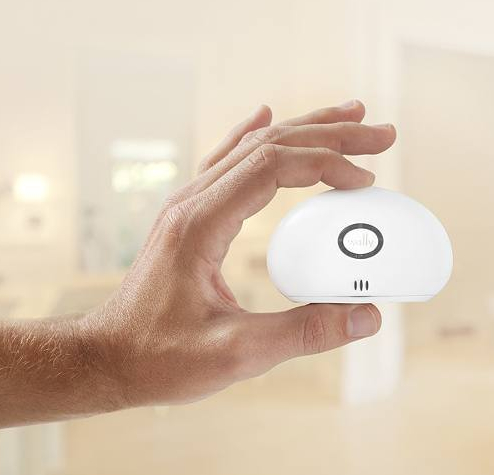
SNUPI Technologies, the University of Washington spin out led by serial entrepreneur Jeremy Jaech, has scored $7.5 million in financing that it will use to launch a new home sensor product known as Wally. Total funding in the 2-year-old startup now stands at $9 million.
Wally, which we wrote about last November, is a $299 device that’s designed to detect leaks and moisture in homes.
No batteries are needed for the device, with the system set to work continuously for 10 years. It does this by bypassing traditional Wi-Fi and Bluetooth connections, instead using the copper wiring in the walls of a home as an antenna.
The Insurance Information Institute estimated that 14 million homeowners suffered from damage due to water, freezing and mold in 2011, which resulted in $11 billion in property loss.
“It’s been exciting for our team to bring this innovative communications and sensor technology out of the lab and into the consumer marketplace,” said Jaech in a release. “Wally provides peace of mind to homeowners and solves a real problem using connected home technology.”

Jaech is a well respected entrepreneur, having previously co-founded Visio and Aldus. With SNUPI, he’s partnered with University of Washington professors Shwetak Patel and Matt Reynolds, as well as doctoral student Gabe Cohn.
Investors in the round include Washington Research Foundation Capital, Madrona Venture Group and select angel investors.
“As the connectivity between people and their everyday things continues to flourish, consumers are becoming increasingly empowered to take action and even manage risk more effectively in their own environments,” said Madrona’s Tom Alberg, a board member at SNUPI who got to know Jaech while serving as a director of Visio.
The first Wally device, known as WallyHome, will be available for pre-order on January 20th with the devices available at retail in March.
SNUPI, an acronym that stands for Sensor Network Utilizing Powerline Infrastructure, eventually could find itself competing directly with Nest, the heavily-funded Silicon Valley company known for its connected thermostats and smoke detectors. Nest raised $80 million in funding last year, reportedly at an $800 million valuation.





